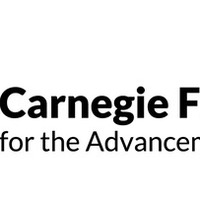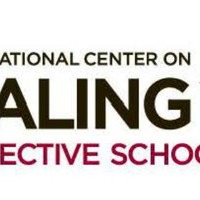Cross-National Research on Continuous Improvement
Item
- Title
- Cross-National Research on Continuous Improvement
- Abstract/Description
- Effectiveness and improvement have become key terms in educational research. However, cross-national research applies different approaches to providing knowledge for improvement along with divergent assumptions for change. Most frequently, continuous improvement refers to systemic inquiry, involving practitioners’ knowledge of daily work problems. It thereby seeks to develop, implement, revise, and adapt interventions with the aim of becoming part of regular work routines (see General Overviews). Based on short-cycled, multiple tests of small changes in various contexts, continuous improvement research develops education solutions on scale. For continuous improvement, the Model of Improvement is fundamental and consists of three questions: What are we trying to accomplish? How will we know that a change is an improvement? What changes can we make that will result in improvement? And there is the [p]lan-do-study-act cycle. Continuous improvement relies on systems theory and methods of design-based implementation research. It conceptualizes improvement processes based on a context-based theory of change (see Theoretical Framework and Approaches). Researchers apply various models such as Six Sigma, planned experimentation, and data-based inquiry (see Model and Tools). Furthermore, research in continuous improvement involves cross-sector collaboration between research, education institutions, and nongovernmental organizations (NGOs) (see Cross-Sector Collaboration). Continuous improvement has become an international phenomenon that refers not only to a strong research base in the United States but also to other research initiatives worldwide (see Research in National Contexts). This article covers several relevant aspects of continuous, practitioner-focused, and cyclical improvement processes in education that have been discussed in cross-national contexts. While the list of references is not exhaustive, it aims to provide a point of entry to this emerging field.
- Date
- Series editor
-
 Peurach, Donald J.
Peurach, Donald J.
- Resource type
- en Research/Scholarly Media
- Resource status/form
- en Published Text
- Scholarship genre
- en Bibliography
- IRE Approach/Concept
- Continuous Improvement
- Plan Do Study Act (PDSA) Cycle
- Six Sigma
- Lesson Study
- Non-Governmental Organizations (NGO)
- Professional Learning Network
- Network-Based Improvement
- Networked Improvement Community (NIC)
- Research Practice Partnership (RPP)
- Featured case/project
-
 Middle-school Mathematics and the Institutional Setting of Teaching (MIST) Project
Middle-school Mathematics and the Institutional Setting of Teaching (MIST) Project
- Building a Teaching Effectiveness Network (BTEN)
- Mathematics Teacher Education Partnership (MTE-Partnership)
- Primary national context
- United States
- China
- Japan
- Colombia
- Chile
- Venezuela
- Republic of Korea
- Philippines
- Pakistan
- Kenya
- Cameroon
- Sweden
- The Netherlands
- New Zealand
- United Kingdom
- Open access/full-text available
- en No
- Peer reviewed
- en Yes
- DOI
- 10.1093/OBO/9780199756810-0237
- Other related resources/entities
-
 Spencer Foundation
Spencer Foundation
-
 Strategic Education Research Partnership (SERP)
Strategic Education Research Partnership (SERP)
- UChicago Consortium on School Research
-
 Carnegie Foundation for the Advancement of Teaching
Carnegie Foundation for the Advancement of Teaching
-
 Institute of Education Sciences (IES)
Institute of Education Sciences (IES)
-
 National Center on Scaling Up Effective Schools (NCSU)
National Center on Scaling Up Effective Schools (NCSU)
-
 Consortium for Policy Research in Education (CPRE)
Consortium for Policy Research in Education (CPRE)
- Innovation Lab Network (ILN)
- Citation
- Koranyi, F., & Kolleck, N. (2020). Cross-National Research on Continuous Improvement. In Oxford Bibliographies. Oxford University Press. https://www.oxfordbibliographies.com/view/document/obo-9780199756810/obo-9780199756810-0237.xml
- Cites
- The Improvement Guide: A Practical Approach to Enhancing Organizational Performance
- What Is Improvement Science? Do We Need It in Education?
- Learning to Improve: How America’s Schools Can Get Better at Getting Better
- Implementing Educational Innovations at Scale: Transforming Researchers Into Continuous Improvement Scientists
- A Model of Continuous Improvement in High Schools: A Process for Research, Innovation Design, Implementation, and Scale
- What's Your Theory? Driver Diagram Serves as Tool for Building and Testing Theories for Improvement
- Networked Improvement Communities: The Discipline of Improvement Science Meets the Power of Networks
- Design-Based Implementation Research
- Chinese Lesson Study: A Deliberate Practice, a Research Methodology, and an Improvement Science
- Research–Practice Partnerships in Education: Outcomes, Dynamics, and Open Questions
- Six Sigma in Education
- School Improvement Networks as a Strategy for Large-Scale Education Reform: The Role of Educational Environments
- Governments, Markets, and Instruction: Considerations for Cross-National Research
- Using Improvement Science to Better Support Beginning Teachers: The Case of the Building a Teaching Effectiveness Network
- Generating a Networked Improvement Community to Improve Secondary Mathematics Teacher Preparation: Network Leadership, Organization, and Operation
Annotations
There are no annotations for this resource.
